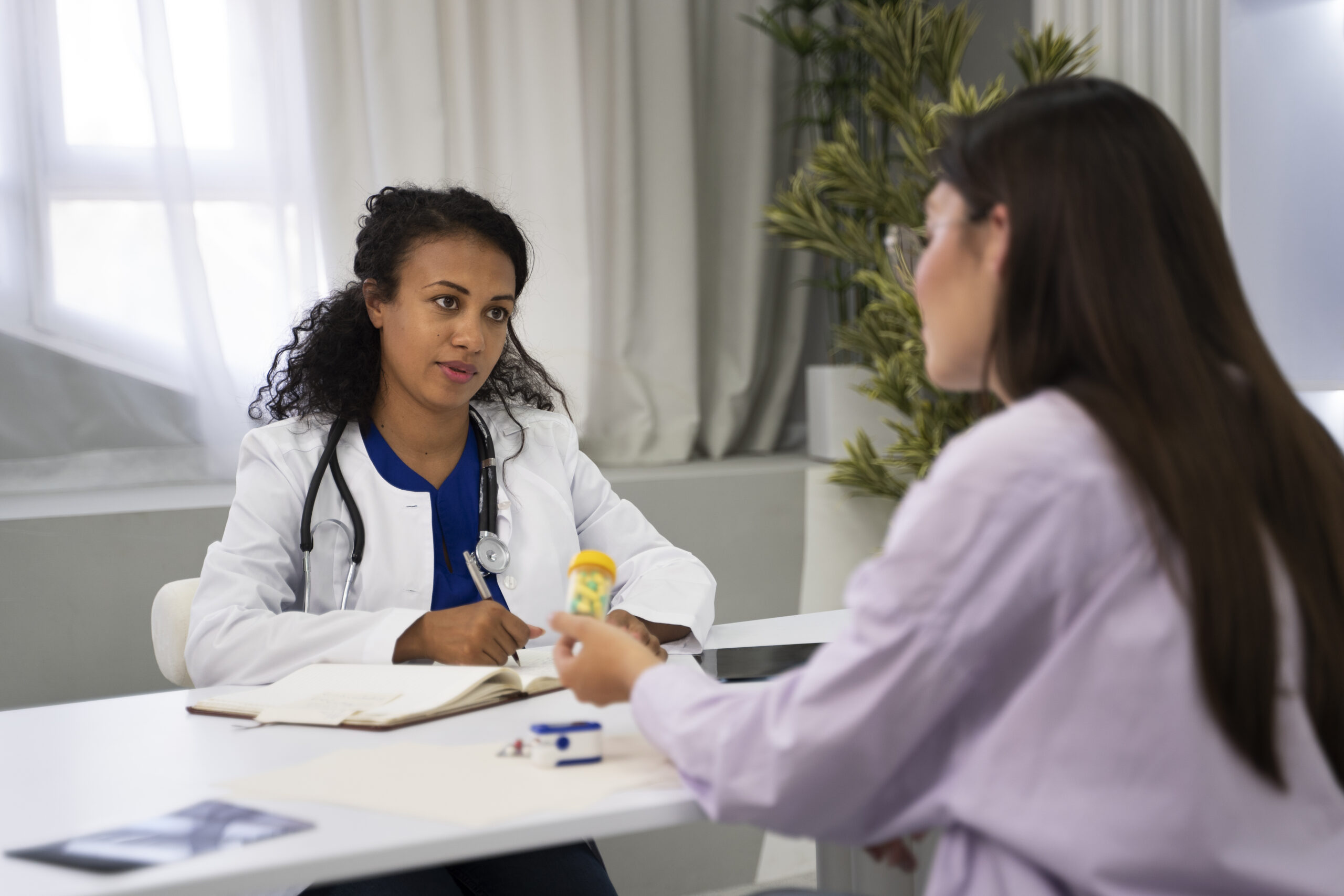


Understanding and Treating Irregular or Painful Periods
Menstrual health is a vital part of a woman’s overall well-being. At our clinic/hospital, we specialize in diagnosing and managing a wide range of menstrual disorders that can affect girls, adolescents, and adult women.
If your period is causing discomfort, interfering with daily life, or showing unusual patterns, we’re here to help you find answers and relief.


(Infrequent periods or no periods at all)
May be due to:
Stress or weight changes
PCOS or thyroid issues
Hormonal imbalances
Cramping, nausea, or back pain during menstruation
Could be linked to:
Endometriosis
Fibroids or pelvic infections
Very heavy or long-lasting periods
May lead to:
Fatigue or anemia
Low iron levels
Any vaginal bleeding after menopause is not normal and needs prompt evaluation.
Bloating, mood swings, or irritability before periods
PMS: Common but manageable
PMDD: A more intense version that affects daily life
Hormonal condition causing:
Irregular periods
Acne, weight gain, and excess hair
Primary: No period by age 16
Secondary: Periods stop for 3+ months after starting normally
We use safe, thorough tests to understand your symptoms:
Detailed health history & physical exam
Pelvic ultrasound
Hormone level & thyroid tests
Laparoscopy (if needed)
We personalize your care based on the cause and your needs:
Hormonal therapy (e.g., birth control pills)
Pain relief (like NSAIDs or antispasmodics)
Iron supplements for anemia
Lifestyle changes including diet & exercise
Treatment for PCOS, thyroid, or endometriosis
Minimally invasive procedures if required
Book a visit if you:
Bleed heavily or for more than 7 days
Miss multiple periods
Have severe cramps that impact daily life
Bleed after menopause
Feel very unwell or emotional before periods
Spot between periods or have unpredictable cycles
Whether you’re navigating your first periods or managing long-term symptoms, our team is here with non-judgmental, respectful, and expert care—tailored to your age, needs, and concerns.
Your ability to have children after surgery depends on the procedure and the reason for it:
Laparoscopic surgery (also known as minimally invasive surgery) uses small incisions and a camera to visualize and treat the problem. It has several benefits over traditional open surgery:
After gynecological surgery, you will be monitored in a recovery area. Common post-surgery symptoms include:
Your doctor will give you specific guidelines, but here’s a general idea:
Hormone replacement therapy (HRT) may be recommended if the surgery involves removal of the ovaries or other hormone-producing organs. This helps balance hormone levels and alleviate symptoms like hot flashes, mood swings, or vaginal dryness.

Premier women’s healthcare facility
Near SDM Engg College, Opp Police Training School, Kalaghatagi Road, Giri Nagar, Dharwad - 580002